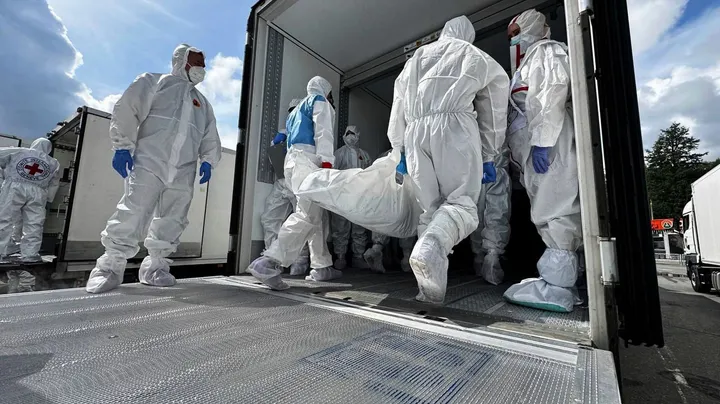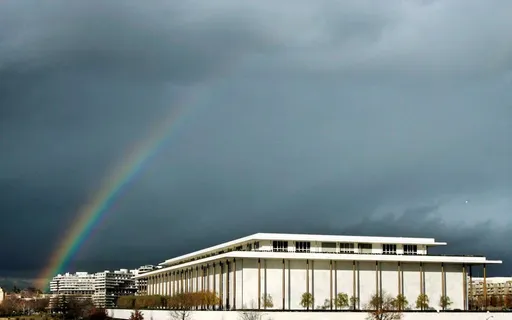Philippine public officials showed "reckless disregard of processes" in carrying out a programme to immunise hundreds of thousands of children, a senator leading an investigation into the government's use of a new dengue vaccine said.
On December 1, the Philippines halted the use of Dengvaxia after its maker French drug firm Sanofi said the vaccine itself might, in some cases, increase the risk of severe dengue in recipients not previously infected by the virus.
On Monday, Sanofi urged the Philippines to lift the suspension of its anti-dengue vaccine, insisting it was safe, but the government accused the firm of "dishonesty."
But the company's regional head said on Monday that removing the vaccine from the Philippine market did the public a "disservice", as it was safe and effective for most Filipinos.
"That will be a regression in the country's approach in solving a major public health concern and a disservice to the Filipino people," Thomas Triomphe, Sanofi Pasteur's head of Asia-Pacific, said at a Senate hearing.
"Doing so would in effect leave 90 percent of the population at the mercy of an epidemic which has been found to be preventable," Triomphe added, referring to health department figures on the number of Filipinos who contract dengue.
Preventable disease
The vaccination programme was launched last year by the administration of previous president Benigno Aquino, making the Philippines the first nation to use Dengvaxia on a mass scale.
About 830,000 schoolchildren had received at least one dose of the vaccine under the public programme while 32,000 patients were vaccinated in private hospitals, Health Secretary Francisco Duque said on Monday.
During the Senate hearing, Duque accused Sanofi officials of "mental dishonesty" about the vaccine's effectiveness, saying he doubted their assurances.
Dengue is not as serious as malaria, but it kills about 20,000 people each year and infects hundreds of millions as it spreads rapidly in many parts of the world. The Philippines reports an average of 200,000 cases every year, the DOH said.
Senate inquiry
Senator Richard Gordon, chairman of the investigation panel, said on Monday that the programme's approval and procurement were done with "undue haste," given how quickly the Department of Health (DOH) got funding for the $69.55-million (3.5-billion-peso) campaign.
Gordon said "rushed" approval was given to a "vaccine that has not been proven to be totally effective".
The roll-out of the mass vaccination program was "premature," some doctors and pharmacologists on a DOH advisory body told the senate inquiry. They were the same group of experts who in January 2016 urged caution over the vaccine, saying its safety and cost-effectiveness had not been established.
After two meetings in January, the Formulary Executive Council (FEC) of advisers approved the government's purchase of the vaccine on February 1, 2016.
The FEC said Dengvaxia should be introduced through small-scale pilot tests and phased implementation rather than across three regions in the country at the same time, and only after a detailed "baseline" study of the prevalence and strains of dengue in the targeted area, the FEC letter and minutes of the meetings said.
Two months after the FEC wrote to the health secretary, Janette Garin, the DOH began immunising one million students around the age of 10 in all three target areas in April 2016, in accordance with its original plan but at odds with the FEC's recommendations to conduct a slow roll-out of the vaccine.
Skipping the slow roll-out
"The usual process for the DOH that has protected our children for so many decades was not followed. That's a fact," said Susan Mercado, a former Philippines health department undersecretary and former senior official at the World Health Organization (WHO).
WHO was not involved in the deliberations of the FEC, according to the minutes. It said in a statement last week that a position paper on the dengue vaccine it published in July 2016 did not include a recommendation for countries to introduce it.
Now, after Sanofi's warnings, WHO has said it agrees with the government's decision to suspend the immunisation programme.
Garin said the procurement of the vaccine was above board.
"I categorically deny any wrongdoing," she told the inquiry. "I am not involved in any corruption and I am willing to be investigated."
Many parents are anxious and worried over the safety of the vaccine. Iris Alpay, one of the parents who attended the hearing, admonished health officials for using their children as "experimental rats".
Over 1,000 people died of the disease in the country last year.
























